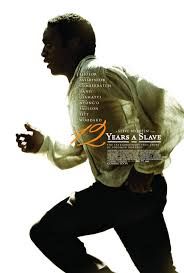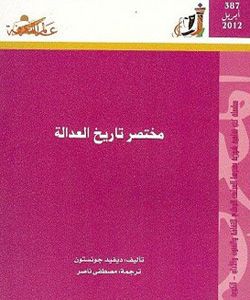"Till human voices wake us, and we drown."
This is how T. S. Eliot purposively chooses to end his renowned poem, The Love Song of J. Alfred Prufrock. It is when the world intrudes, or in Prufrock's own words, "Till human voices wake us," that the "we" vanishes; it "drown[s]."
Prufrock delves into a world to which he does not seem to belong, a world in whose corners "the women come and go/Talking of Michelangelo," the very refrain that Eliot resorts to now and again. Does the women's talking of Michelangelo denote their intellectuality? Hardly, for every other bit of information we are admitted to, through Prufrock's eyes, reveals their pettiness. Only he is the intellectual individual upon whose interior monologue the consciousness of the poem, and that of the modern world, too, are reflected. Only he digresses into pondering the possible ramifications of, negatively or affirmatively, paralleling himself with Hamlet, Polonius, the Fool, Lazarus and St. John. Only he is led, by "Streets that follow like a tedious argument/Of insidious intent… to an overwhelming question." And one ventures to wonder what that question could be but the question of existence!
In Shakespeare's Hamlet, the protagonist's lack of timely action has been long attributed, in one appreciation of the play, to his excessive thoughtfulness. Considering Prufrock's self-deprecating attitude towards himself, we cannot accept his disownment of the fact that he has a close similarity to Hamlet, that he is a modern, authentic continuation of the Prince of Denmark. "No! I am not Prince Hamlet, nor was meant to be;" Prufrock's interjection reveals his awareness of his parallelism with Hamlet. It also serves, I contend, to draw the attention of the as-yet-unmindful-of-their-resemblance reader. Prufrock asserts what he ostensibly denies.
In his seminal essay, Tradition and the individual talent, Eliot argues that tradition "involves, in the first place, the historical sense;" he maintains that the historical sense "involves a perception, not only of the pastness of the past, but of its presence;" setting himself as a parallel to the aforementioned figures, Prufrock displays an awareness of his belonging to that tradition, himself being an embodiment of its simultaneous existence.
It is interesting to notice that inside the room in which Prufrock is trapped, he focuses only on women; he takes heed of, inter alia, "Arms that are braceleted and white and bare/[But in the lamplight, downed with light brown hair!"];" he is curious about his image in their eyes: "[They will say: "How his hair is growing thin!]" and "[They will say: "But how his arms and legs are thin!"]." Believing to be past his years of romantic pursuits, Prufrock, however, still has internal urges that he aspires to fulfil. And yet, reverberated as it is, the very question of "Do I dare?" vehemently stifles his ambitions. Apparently, Prufrock is Prufrock's own relentless enemy.
Prufrock is Prufrock's own relentless enemy, for part of his divided self obviously blocks his course of action, to the extent of making of his unrealised attempts to woo a woman such a cosmic issue as "Disturb[ing] the universe;" scrupulous as he is, Prufrock gives room for his minor experiences to assume cosmic dimensions. Moreover, Prufrock's sophisticated psyche – as well as his liability to be aligned with Hamlet – is further asserted by his hesitation: "And indeed there will be time/To wonder, "Do I dare?" and, "Do I dare?"/Time to turn back and descend the stair,/ … /In a minute there is time/ For decisions and revisions which a minute will reverse." and "And indeed there will be time/For the yellow smoke that slides along the street,/ … /Before the taking of a toast and tea."
"I grow old … I grow old …
I shall wear the bottoms of my trousers rolled."
Growing old myself, I cannot help identifying with Prufrock's bittersweet song; I cannot help identifying with Prufrock's ever sought, never realised song. His song and my song seem to have much in common. I, too, "have known them all already, known them all:/Have known the evenings, mornings, afternoons," and I, too, "have measured out my life with coffee spoons[.]" Yes, I do admit it: My life has been of little value, so little indeed that it could adequately be measured out with only a couple of coffee spoons. I am afraid that I will have to "wear the bottoms of my trousers rolled" so soon. I am afraid. I am.
My reading of Stevie Smith's poem, GRAVE BY A HOLM-OAK, is fundamentally based upon an assumption that it holds an agnostic attitude towards a deaf mute universe that seems unwilling to provide the questioning poet/individual with any sort of answer. First of all, let us read the poem:
You lie there, Anna,
In your grave now,
Under a snow-sky,
You lie there now.
Where have the dead gone?
Where do they live now?
Not in the grave, they say,
Then where now?
Tell me, tell me,
Is it where I may go?
Ask not, cries the holm-oak,
Weep, says snow.
It is apparent that the master figure of speech that encapsulates the entire poem is an apostrophe in which the poet is addressing a deceased Anna who, according to the title, lies by a holm-oak.
In the first stanza, the poet seems so confident of what she states:
You lie there, Anna,
In your grave now,
Under a snow-sky,
You lie there now.
However, this above-referred to certainty begins to waver by the beginning of the second stanza:
Where have the dead gone?
Where do they live now?
Not in the grave, they say,
Then where now?
Evidently, the affirmativeness of the statements of the first quartet shades into the interrogative leaning of the second one. Moreover, it is worthy of notice that the only statement in the second stanza, i.e. not in the grave, they say, is by no means attributable to the poet, the "I" of the poem; rather, it is they who say.
The poet is obviously abiding by a questioning attitude as regards the facts of the afterlife; she has no idea as to where the dead are, in actual fact, residing: in their graves or somewhere else.
Having reached this juncture in my appreciation of the poem, one thinks one is justified to raise this very question: Why is the poet so preoccupied with the matter that she keeps bothering the late Anna who, one supposes, wishes to rest in peace?! Let us bear the question in mind and continue our scrutiny.
Tell me, tell me,
In terms of drama, this line can be taken to be the emotional "climax" of the poem; sinking in bewilderment, the seemingly tormented poet so urges the deceased Anna to encounter her with the transcendent facts of death. Shakespeare once defined death as: the undiscover'd country from whose bourn no traveller returns. In other words, the poet is addressing an inhabitant of the undiscover'd country from whose bourn no traveller returns. This renders her quest unattainable.
Back to the question that I have above posed: Why is the poet so preoccupied with the matter that she keeps bothering the late Anna?
Here comes the answer:
Is it where I may go?
Simply put, the poet is involved. She, too, is going to die, just as Anna, once for all, did. The poet is fully aware that the theme at stake is a universal one.
Ask not, cries the holm-oak,
Nature, seemingly being more experienced, exposes the absurdity of the poet's quest; Ask not is the answer that, once again, renders the poet's quest unattainable.
As a consequence, the "Weep" of the concluding line denotes not only the poet's grief over Anna's death, but also, more importantly, her grief over her/our predicament. We are all caught up in the inescapable meshes of the same cosmic web.

